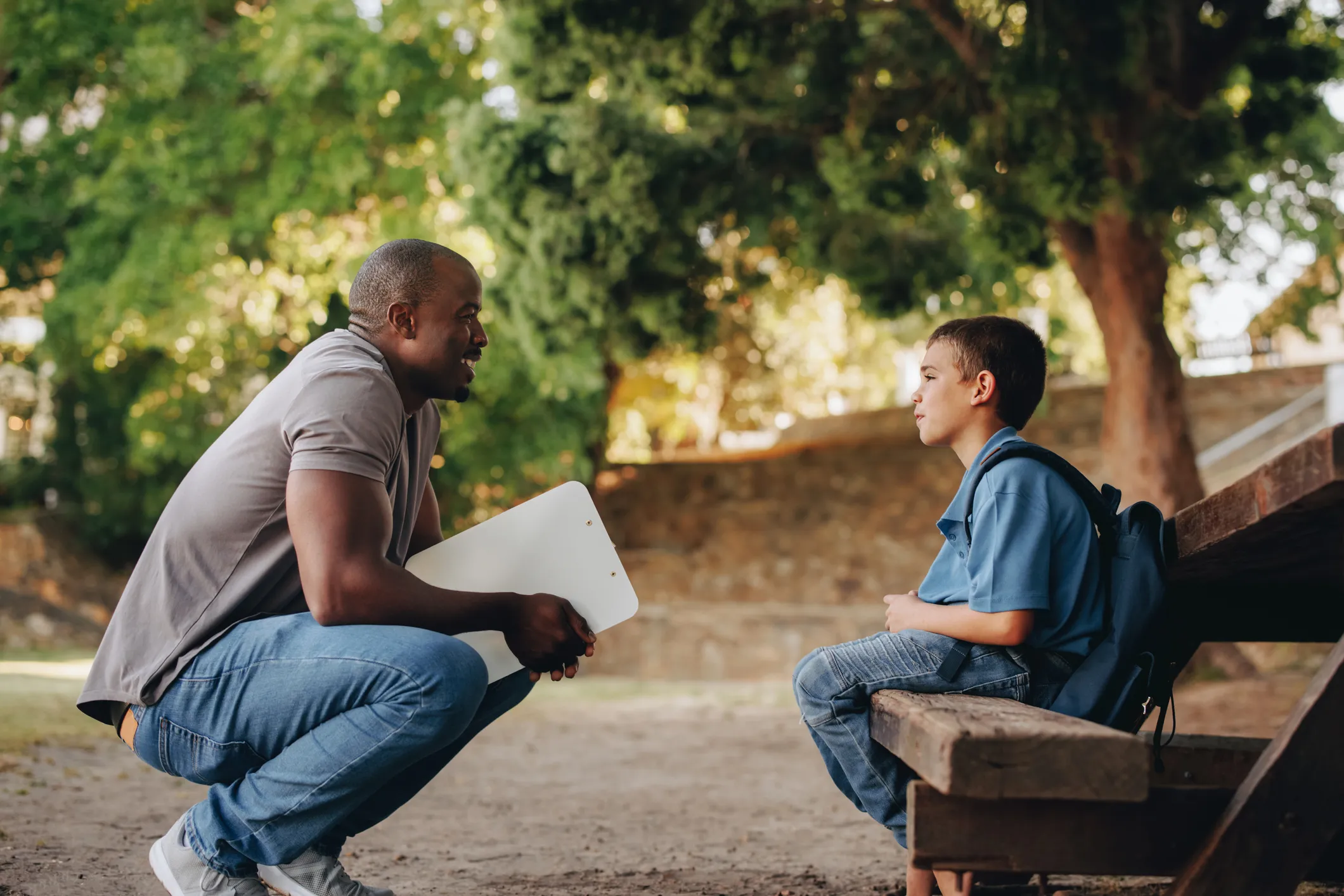Juvenile interrogation laws in Louisiana: Know your child’s rights
According to Louisiana’s juvenile interrogation laws, police officers can question a minor even if they don’t contact the child’s parent or get their permission. Meanwhile, a child can remain silent and is not legally required to answer any questions from the police. By contacting a Lake Charles juvenile defense attorney, the child and their parent can get the legal help they need to navigate this challenging situation.
The Johnson Firm has plenty of experience with juvenile interrogations in Louisiana. We can teach you about Louisiana’s juvenile interrogation laws and how they apply to your case. For more information, please get in touch with us.
Can a juvenile be questioned without a parent present?
Parents often wonder can a juvenile be questioned without a parent in the room. Ultimately, police officers can do just that. They can start interrogating juveniles without parents present, but kids have the right to refuse to answer any questions.
| “There is no absolute requirement that an attorney or guardian must be present with a juvenile suspect at the time he makes a statement. Instead, a totality of the circumstances standard is used as the basis for determining the admissibility of juvenile confessions.” State in Int. of C.H., 2015-1024 (La. App. 1 Cir. 11/6/15), 183 So. 3d 567, 571. |
Louisiana has basic rights in place for juveniles and others. If police interrogate someone, they can ask them any questions. For kids, they have the right to ask to contact a parent or have a parent with them during their questioning, and police must comply with this request.
The Johnson Firm makes sure our client’s legal rights are protected. If you want to learn more about juvenile interrogation laws in Louisiana, please let us know. We can explain what you need to do if your child is questioned by the police.
What you need to know about juvenile Miranda waiver and parental rights
Police officers won’t necessarily read a minor their Miranda rights before they begin questioning them. This puts a child in an extremely difficult spot. Since the minor is unlikely to know that they do not have to answer questions, they may provide responses and incriminate themselves without realizing it.
“Reasonable” questioning and detainment
Any questioning of a minor while they are detained by police is considered to be “reasonable.” Police officers must read the juvenile their Miranda warning and make sure they understand it. If the juvenile answers questions, anything they say is on the record and can be used against them in court.
For parents, you have the right to be present during police questioning if your child asks you to be there. However, there’s no guarantee that police officers will tell your son or daughter that they can ask for you to be there before they answer police questions. If your child contacts you about police questioning, it is beneficial to tell them not to answer any questions until you and your attorney arrive.
How a police officer can use your child’s statements against them
Any statements that a minor provides during police questioning are considered voluntary. The child has the right to request their parent to be present, even if the police do not tell them about it. This means police officers can ask your child questions, and how they answer them can determine if they are charged with a crime.
There can be instances where a minor is forced to admit to committing a crime against their will. For instance, police officers can threaten a child in the hopes of getting a confession out of them. In this instance, the confession is coerced and cannot be used against the child in court.
If you’re worried that your child won’t be protected under Louisiana’s juvenile interrogation laws, it pays to partner with an attorney. You can hire a juvenile defense lawyer who can answer frequently asked questions about these laws and other legal topics. This attorney will make sure that your child’s legal rights are protected if they face police questioning.
What it takes to defend a juvenile criminal charge
Police will do everything they can to get a child to admit to a crime. Fortunately, you can connect with a juvenile defense attorney who can help you figure out the best way to get a charge against your child dismissed or reduced. A juvenile defense lawyer knows juvenile interrogation laws and all they entail and may be able to find violations of the juvenile’s rights committed by authorities that ultimately help you resolve your child’s case.
A juvenile defense lawyer can explain crimes where juveniles are tried as adults. These crimes include:
- First- or second-degree murder
- Aggravated kidnapping
- Aggravated rape
Regardless of the charge, a lawyer considers all aspects of the case. The attorney can then prepare an argument designed to show that the juvenile defendant is not guilty. If the lawyer succeeds, the defendant may have their charge dismissed or receive a lesser penalty than the one that the prosecution originally proposed.
Don’t wait to get help with your juvenile criminal case
The Johnson Firm can help you and your child deal with your criminal case. If your child has been questioned by police and faces a criminal charge, our team can provide legal guidance moving forward. Please contact us online or call us at (337) 433-1414, so you can discuss your case with our Lake Charles juvenile defense lawyer.



